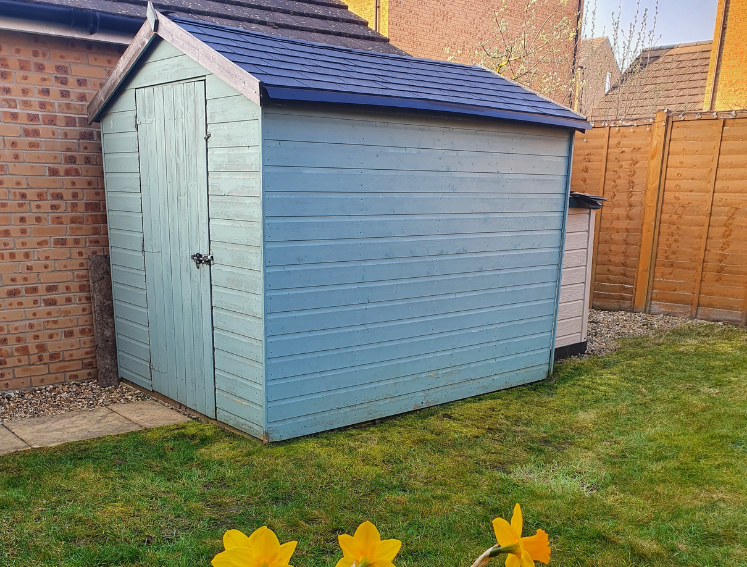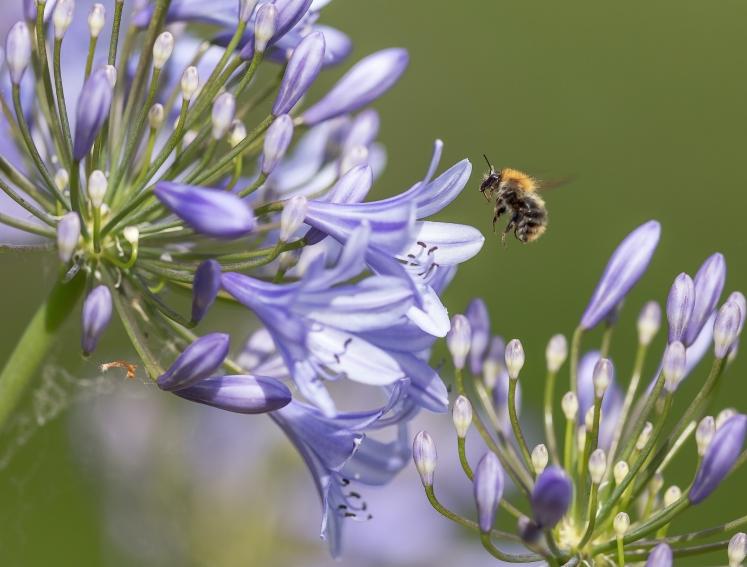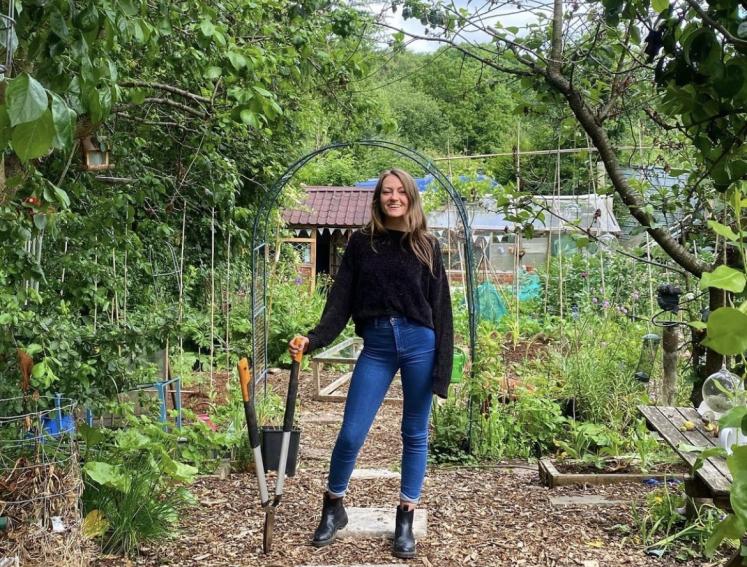Make eco-friendly changes to your outdoor space with out top tips!
Are you looking to make some eco-friendly changes and additions to your outdoor space? It’s easier than you might think, and these ideas will give you all you need to inspire your eco-garden…
Conserve water
Reduce your reliance on mains water and sprinklers, and conserve rainwater instead! Not only will you save money (and who doesn’t love to see their water bill reduced?!) you’ll also be doing the planet a favour too. It’s also super easy to start conserving water, simply install a water butt on every downpipe - these can be in the form of the usual green plastic tubs, but if you’re trying to aim for a plastic-free garden then a weathered oak barrel will do the same job.
Choose eco-friendly materials

Approx. 50% of our roofing sheets is made from recycled fibres!
When it comes to choosing the materials you use in your garden, you’ll want to opt for natural eco-friendly options such as FSC-certified timber, and even recycled materials where possible too! Here at Onduline, we have a very strong environmental ethos, which is why we use high-tech recycling processes to recycle a staggering 80,000 tonnes of material each year! Approximately 50% of an Onduline sheet is made with recycled cellulose fibres, and we only use environmentally-friendly pigments to colour our sheets too. So, if you’re looking to give your shed a revamp, install a pergola, or perhaps build a carport, our corrugated roofing sheets are the eco option.
Find out more about Onduline’s sustainability practices here.
Encourage bees and wildlife

Increase your garden's biodiversity
It goes without saying, bees are vital for our ecosystem and there are ways you can help these busy little insects to get by. Choose bright plants with open faces that bloom throughout the year. Examples of good bee-friendly flowers include; campanula, delphinium, foxglove, lavender, alliums, and sunflowers. It’s not just bees you want to encourage into your garden either, attract birds with your own homemade fat balls to provide them with the energy they need to thrive. A biodiverse garden is much more interesting!
Choose permeable paving
It’s no big secret that climate change is attributed to catastrophic flash floods, with concrete covered towns and cities leaving little escape room for water to flow. This is why permeable paving is an essential, with new laws coming into play that regulate the use of solid surfaces in front gardens. More eco-friendly alternatives to solid paving include slate chippings and gravel, but there are various different porous block paving solutions that will help with water drainage. Definitely one to consider if you’re thinking about redoing your driveway anytime soon!
Reduce chemical-use
Reducing your chemical use and opting for more natural alternatives instead, will help you to make your garden a much more planet-friendly place. You can even make your own natural and safe weed killer, it will save money and reduce plastic so it’s a double win.
How to make your own natural weed killer:
Ingredients
- 1 litre of white vinegar
- 3 tablespoons of salt
- 3 tablespoons of washing up liquid
- Spray bottle
Method
Add the salt to the vinegar in a jug and stir until the salt has dissolved, then, add the washing up liquid and mix again. Pour the mixture into your spray bottle and there you have it! It’s as simple as that, and we bet you already had all of the ingredients lying around in the cupboard.
Make your own compost
Recycle your green waste and make your own compost this year! It’s another easy eco-friendly way to save money and improve your green credentials. You won’t need to buy any expensive garden centre compost anymore! Here’s what you can add to your own compost:
- Vegetable peelings
- Grass cuttings
- Fruit waste
- Coffee grounds
- Egg boxes
- Tea bags
- Shredded newspaper
- Straw
- Dry leaves
Keeping a ‘compost’ container in your kitchen is a great way to get into the habit of discarding your vegetable waste into a pot for your compost rather than it heading into the bin! Happy composting
Grow your own vegetables

Take a leaf out of Danni of Plot.81's book
If you want to try and reduce your plastic waste, then growing your own vegetables is a great step towards becoming plastic-free and self-sustainable. Take a leaf out of Danni of Plot.81’s book, just look at her bountiful allotment haul! You don’t necessarily need to take out your own allotment to grow your own organic veggies though, just an area of your garden you can dedicate to nurturing your own carrots and toms. Perhaps your own little growing room too? We love how Danni gave her Victorian outbuilding an overhaul with our eco-friendly ONDUVILLA roof tiles, doesn’t it look great? We also have our translucent polycarbonate sheets which are simply ideal for using with growing rooms and greenhouses, eliminating the need for artificial lighting, thus, reducing your energy usage.
Ready to get started on your eco-friendly garden project? Don’t forget our lightweight and easy-to-install roofing can be purchased via our eShop. Select ranges are also available via The Range, Amazon, and Wickes. Also, if you have any questions about our roofing, our team will be happy to help and you can contact us by calling 0207 727 0533 or emailing [email protected].
Discover the full range at onduline.co.uk.